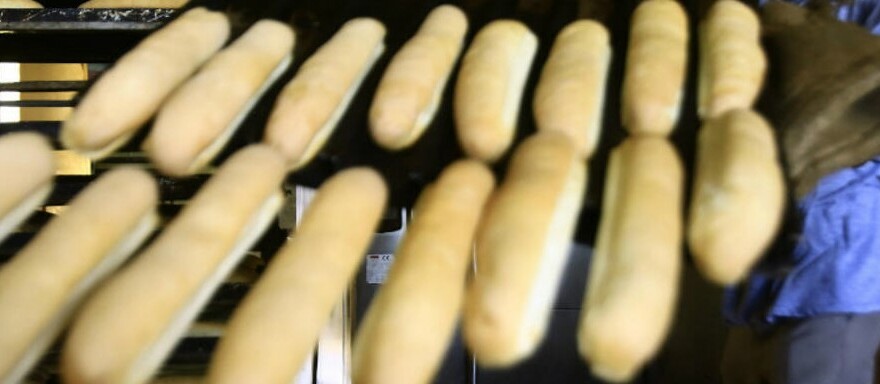In Sudan’s Blue Nile State, the price of a loaf of bread has skyrocketed, with a 65-gram loaf now priced at 100 Sudanese pounds. Previously, three 40-gram loaves were sold for 200 pounds before the latest increase.
Residents of Al-Damazin and Al-Roseires voiced their concerns to Radio Tamazuj about the continuous rise in bread prices and the shrinking loaf sizes, all while citizens grapple with severe hardships due to the ongoing war and its aftermath.
Eissa Mohammed, a citizen, commented, “The bread’s weight is acceptable as long as there is no manipulation in the future. Bakery owners must stick to the agreed-upon weight.”
Ali Abdullah, a bakery owners’ representative, explained that the price and weight changes stem from the increasing costs of production inputs like flour, oil, yeast, gas, and wood.
To enforce bakery sector regulations, the Standards and Metrology Authority has conducted thorough inspections of bakeries to monitor and rectify violations.
“There will be strict legal consequences for those who violate regulations,” affirmed Amin Al-Tayeb Amin, Director of the Standards and Metrology Authority in Blue Nile.
Meanwhile, Al-Hameem Al-Sheikh Hussein, Secretary of the Economic Committee at the Ministry of Finance, clarified that the price increase aims to ensure the continuous availability of bread and to keep bakeries operational, as many have closed due to price instability.
The decision to raise prices came at the request of bakery owners. It’s worth noting that the price of a 25-kilogram sack of flour has surged to over 30,000 pounds from 12,000 pounds previously. Furthermore, gas prices have significantly risen, with a 50-kilogram gas cylinder now costing 104,000 pounds, up from 58,000 pounds before.
The war in Sudan has pushed the country’s economy to the brink of paralysis.
According to experts, the war between the Sudanese Armed Forces (SAF) and the paramilitary Rapid Support Forces (RSF) affected every aspect of the Sudanese economy, covering the industrial, agricultural, mining and service sectors.




